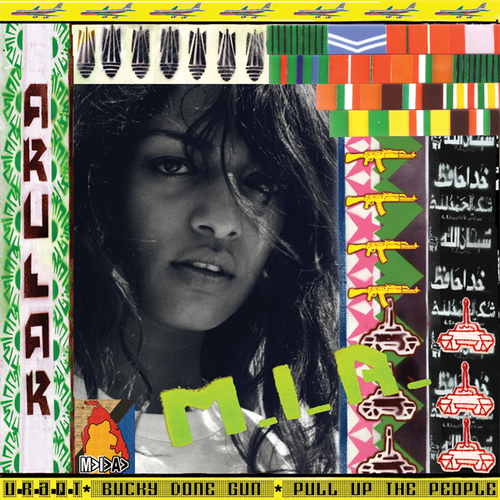8. M.I.A.Arular

I spent a lot of time at school being pilloried for being the mixed race kid that listened to indie music. Girls would regularly listen to what I was listening to and say, "Why are you listening to that? It’s white music." Everyone at my school was predominantly black or Asian and would listen to raga or hip-hop or Bhangra, and while it didn’t really influence my listening palette at that point, it was always there. As I’ve got older, I’ve got more into music from other cultures, and as a DJ I’ve got more in touch with that side of myself – the side that would surreptitiously listen to Buju Banton or whatever was on the common room stereo and enjoy it. For me, it’s kind of like [Beck’s] Odelay in terms of where it sits in having a melting pot of influences. She’s not the best rapper, if you like, but she’s more of a toaster in a raga or dancehall style, and I love how it’s been married to this electronic nous and the sliding, slippery beats. It’s another bloody political album, but she hadn’t really started to embody herself as the M.I.A. we know her as now: M.I.A. the daughter of a Tamil Tiger, or agitator, or global citizen. She’s of Asian extraction and she’s making this black-influenced music, but it’s not the black-influenced music we’re used to being in the mainstream: it’s underground and frowned on because it’s homophobic and misogynistic and blah blah blah, and then here’s someone who’s a woman of colour championing it by saying, "Fucking great for dancing though, isn’t it?" and chatting about injustice at the same time.


